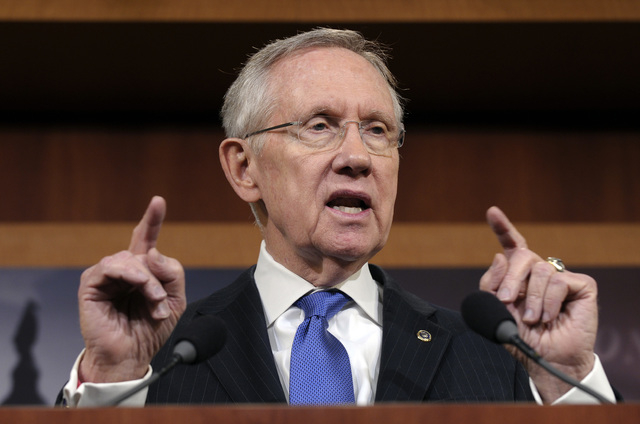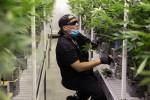Harry Reid stirs the pot
You can’t quite call him “Senator Feelgood,” but you can count Senate Majority Leader Harry Reid among the supporters of medical marijuana.
Reid last week said in an interview with the Las Vegas Sun that he wasn’t always a supporter of marijuana as a palliative for the sick, but he’s changed his mind.
“If you’d asked me this question a dozen years ago, it would have been easy to answer — I would have said no, because [marijuana] leads to other stuff,” Reid said, according to the Sun’s Karoun Demirjian. “But I can’t say that anymore.”
“I think we need to take a real close look at this,” Reid went on. “I think that there’s some medical reasons for marijuana.”
Actually, senator, we did ask you a dozen years ago. In fact, we asked everybody. After years of legislative indifference, activists put an initiative to amend the state constitution on the 1998 and 2000 ballots. It passed easily, 65 percent to 35 percent the second time around.
But that was followed by more than a decade of further legislative indifference, a dark time during which people could get prescriptions for marijuana but could not legally buy the drug. They could grow their own, if they were willing to break the law to buy seeds or plants. That ridiculous scheme was ended during the 2013 Legislature, when lawmakers led by state Sens. Tick Segerblom, D-Las Vegas, and Mark Hutchison, R-Las Vegas, passed a bill to establish medical marijuana dispensaries in Nevada.
If Reid really does think the state needs to take “a real close look at this,” he should call his friends on the Henderson City Council, which along with the city of Las Vegas has passed a moratorium on issuing licenses to dispensaries while the state works out regulations. The law gives local governments the ability to opt out of having any dispensaries in their city limits.
Reid may still harbor doubts about marijuana, however, inasmuch as he said he doesn’t favor outright legalization, the way it’s been done in Colorado and Washington state. But he said his personal experience led him to soften his stance on medical uses for marijuana. He said the ailing son of an unidentified Las Vegas official used the drug to good effect.
“He was so skinny and doing so poorly and somebody told him and his mom, you know, you should smoke some marijuana, because one of the side effects is … you get the munchies, you get extremely hungry,” Reid said. “He tried it and sure enough, he was able to eat for the first time, he got hungry. So I thought, you know there might be some medical reasons for taking another look at this.”
Like the apostle Thomas, who believed in the risen Christ only after he’d seen with his own eyes, there are those who will not believe in the healing power of marijuana until they know somebody who’s personally been helped by it. That’s a perfectly legitimate reason to change one’s mind. But blessed are those who, even without that experience, believe that sick people should be allowed to use a drug prescribed by a physician without interference from the state.
Speaking of, Reid said he didn’t think it was very smart to keep arresting and prosecuting people just for smoking dope.
“I guarantee you one thing,” Reid said. “We waste a lot of time and law enforcement going after these guys that are smoking marijuana.”
Indeed, if only we knew somebody who could do something about that! Somebody with influence in the Congress, who could maybe write a bill or something that would remove marijuana from the list of Schedule I controlled substances (which also includes LSD, PCP, fentanyl and powerful club drugs). If only we knew somebody like that, huh?
Oh, wait …
Steve Sebelius is a Review-Journal political columnist and author of the daily blog SlashPolitics.com. Follow him on Twitter (@SteveSebelius) or reach him at 702-387-5276 or ssebelius@reviewjournal.com.




























